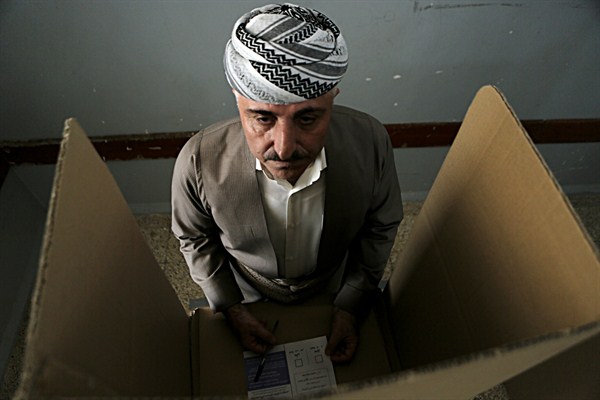Iraqi Kurds voted for independence on Monday, a move that generated controversy within their semiautonomous territory of northern Iraq and threats from powerful neighbors Turkey and Iran, and most of all the Iraqi government in Baghdad. All three are bent on preventing any further steps on the road to Kurdish statehood. Some Iraqi Kurds themselves would even have preferred to give priority to economic and political reforms before pushing for full independence.
It was easy to come up with many reasons for why the referendum was ill-advised, or why the prospects for true independence will remain poor. All that criticism may be analytically true, but it misses the larger point: It’s best to see the referendum as one step on a long road that more likely than not will result in Kurdish independence. And what’s wrong with that?
Inside the territory of the Kurdistan Regional Government, the referendum was a patriotic duty for many, but it triggered misgivings on many fronts. Some saw it as a political maneuver by the dominant Barzani clan to assert primacy. Given that Massoud Barzani has remained president of the KRG long past the legal requirement for new elections, his insistence on the referendum does not meet standards for democratic practice.

